An LA Photo Studio Opens for the Community
A photographer envisions a creative studio space out of an old auto repair shop
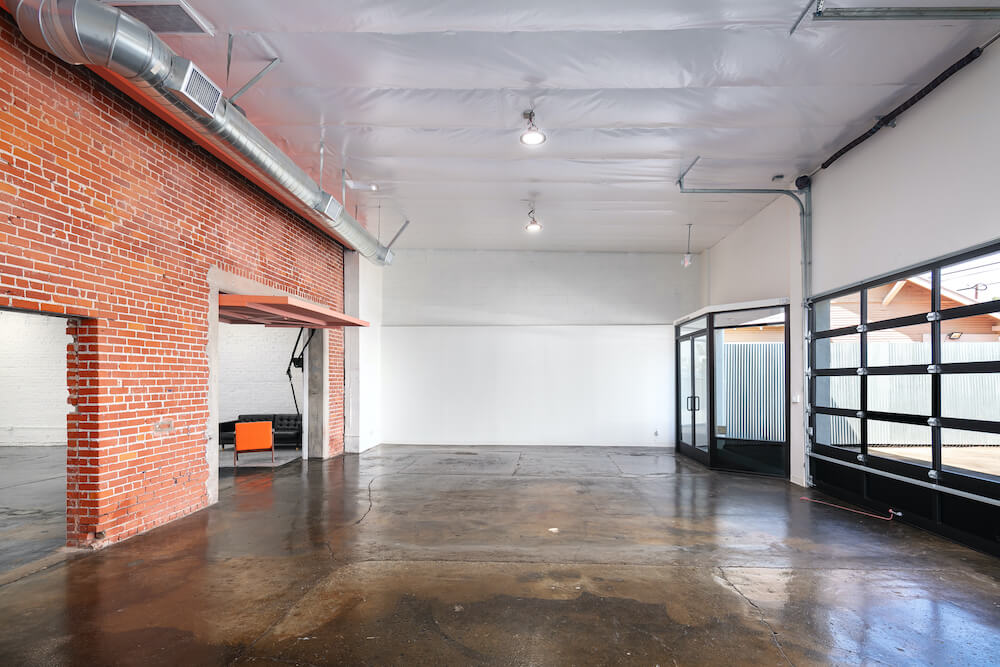
- Project: A photography studio renovates to match their company’s contemporary aesthetic
- Location: Los Angeles, California
- Sweeten general contractor
- Interview with Neil Abramson, owner of Hippo Factory Studios
- Sweeten’s role: Sweeten matches home renovation projects with vetted general contractors, offering advice, support, and financial protection—at no cost to the homeowner.

Previous
Next
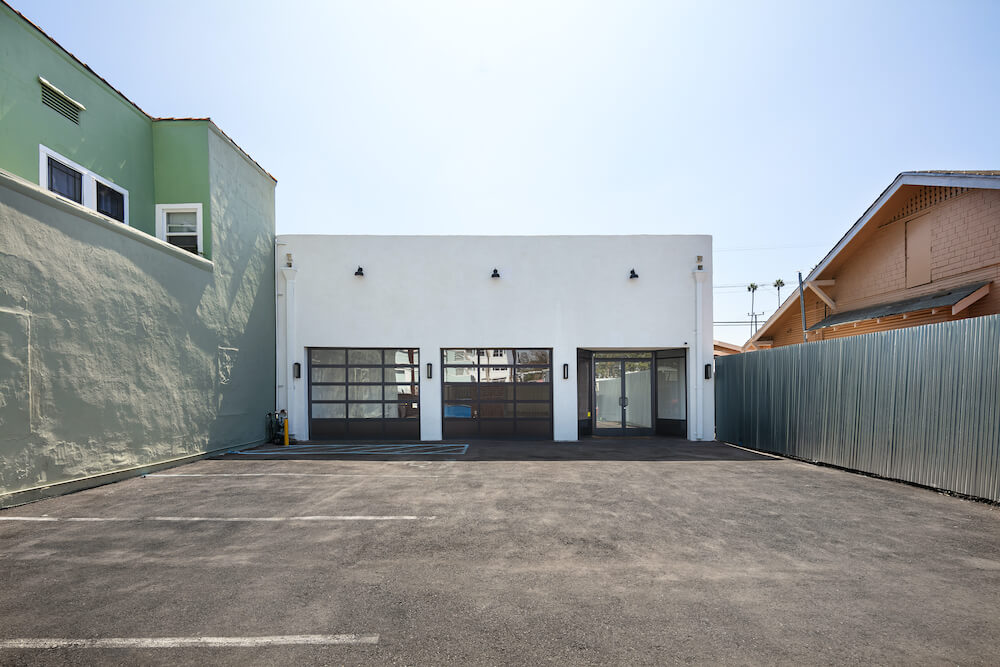
Discovering a commercial space
Sweeten: What is Hippo Factory Studios?
Neil: Hippo Factory Studios is a creative studio space designed as a simple blank canvas; a place to bring your creative ideas alive. It was fashioned out of a 1920s auto repair shop. It can hold photo/film shoots, events, weddings, art exhibitions, and be a temporary production workspace.
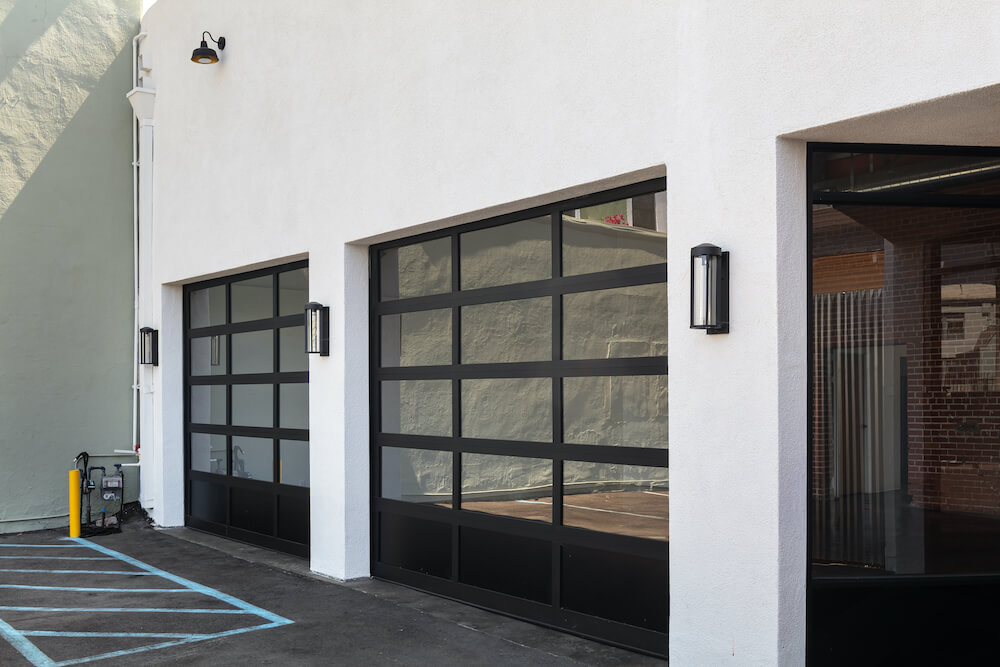
Sweeten: Where did the idea for the business come from?
Neil: I am a photographer and filmmaker and wanted to create a studio I would love to work in. Once the studio was completed we realized it was the perfect size to hold events. It’s a large open space with an intimate feel.
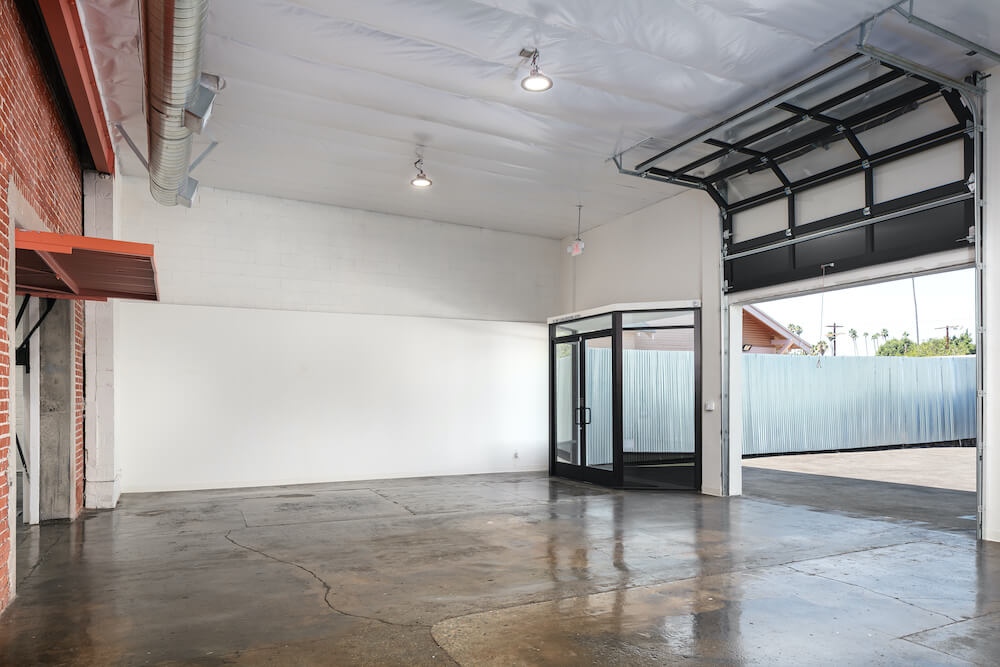
Sweeten: What led to the opening of this new brick-and-mortar space?
Neil: When I first saw the property, which was an in-use auto mechanic shop, I knew it had a lot of potential as a studio space. The building was a diamond in the rough.
Sweeten: Can you describe the “before” space?
Neil: The space was an operating auto mechanic shop built in the ’20s and added onto in the ’60s. It was a shell of a building that was in pretty bad shape. Although, it did have a simple layout and flow. The ceilings in the back room had low support rafters that made it difficult to appreciate the height of the roof. The plumbing and the electricity were very old and needed to be replaced.
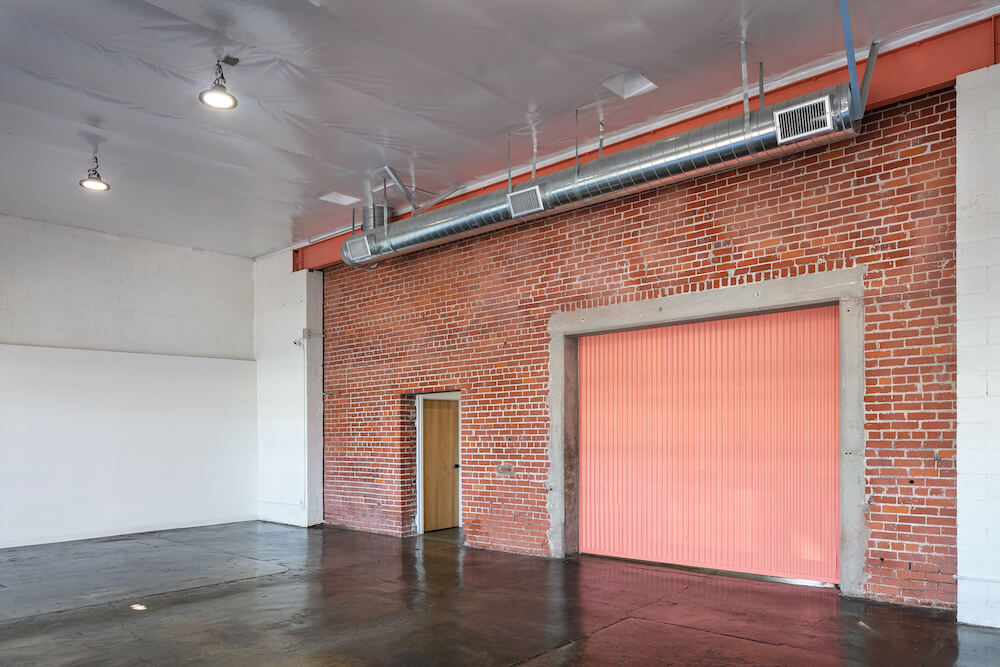
Working on the vision
Sweeten: How does your new design and the materials used represent your brand?
Neil: There’s a contemporary, modern clean aesthetic that is rooted in history and has a warmth and soul about it that speaks to me.
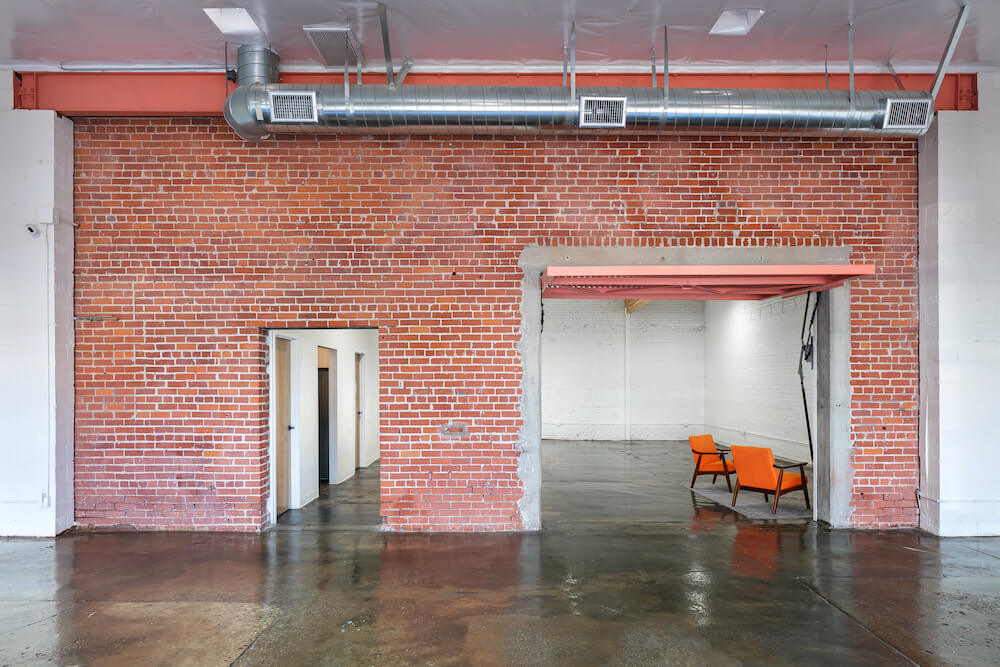
Sweeten: How was your vision executed by working with your Sweeten general contractor? Did they help you solve any unexpected discoveries or make helpful suggestions during the process?
Neil: There were several big challenges that our Sweeten contractor helped solve. The biggest issue was removing the rafters. Large metal posts would replace them and support forty-foot-long wood beams. The rafters were removed without actually touching the roof. This was a big job but done very effectively.
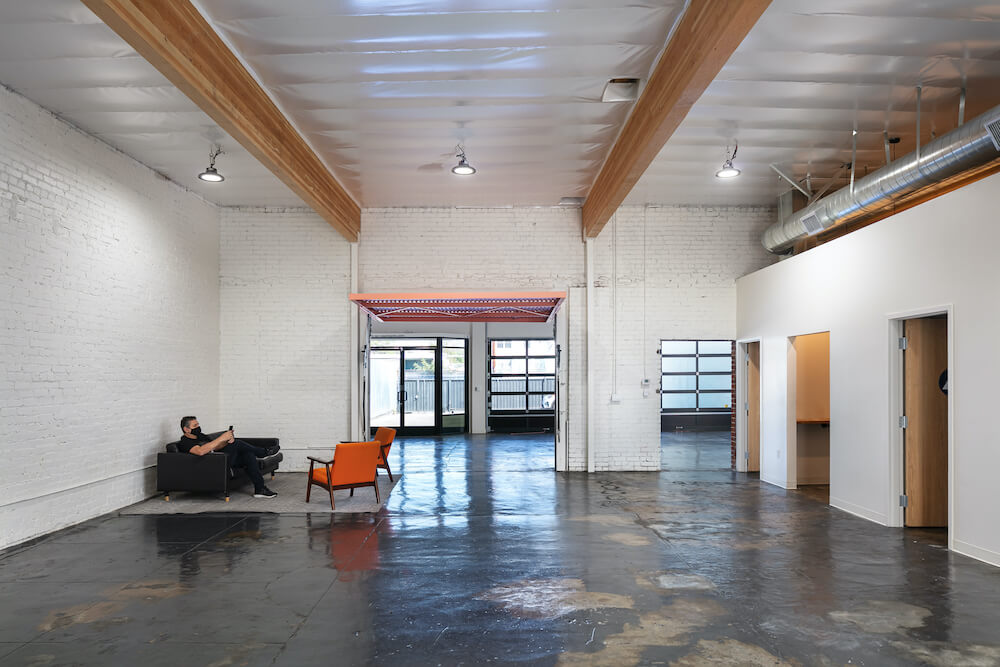
Hiring the right renvovation team
Sweeten: How did you, as a client, work with Sweeten? How do you think Sweeten can help entrepreneurial business owners like yourself?
Neil: Finding a contractor can be a daunting task. There are many horror stories about contractors starting and then not completing the job. Sweeten provided me with a selection of worthy candidates. I met and received bids from several potential choices and then decided to move forwards with my contractor. Sweeten helped find excellent contractors who were all up to the task and reliable.
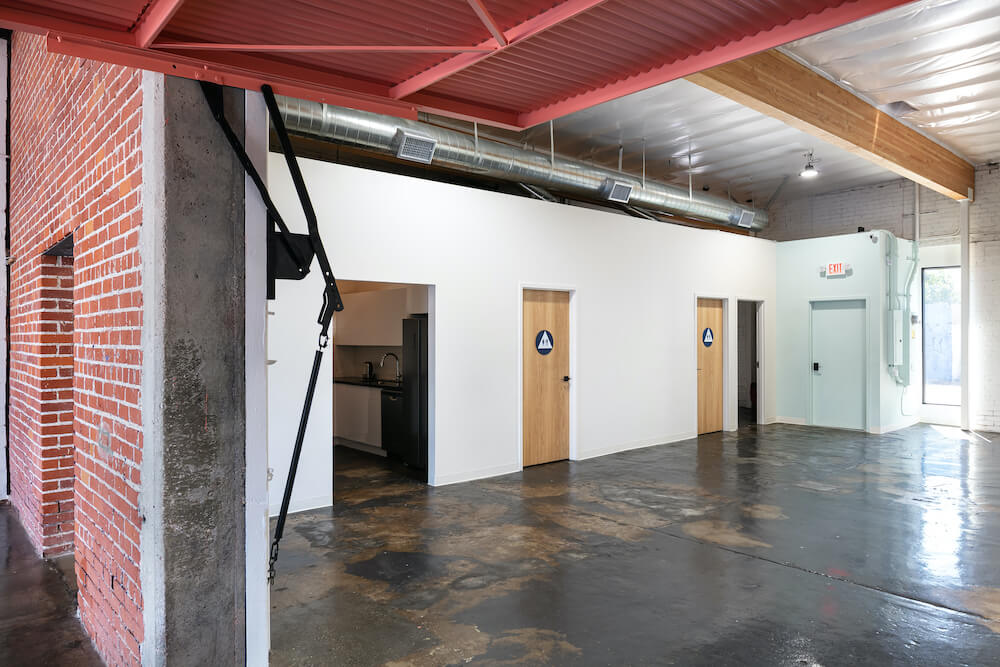
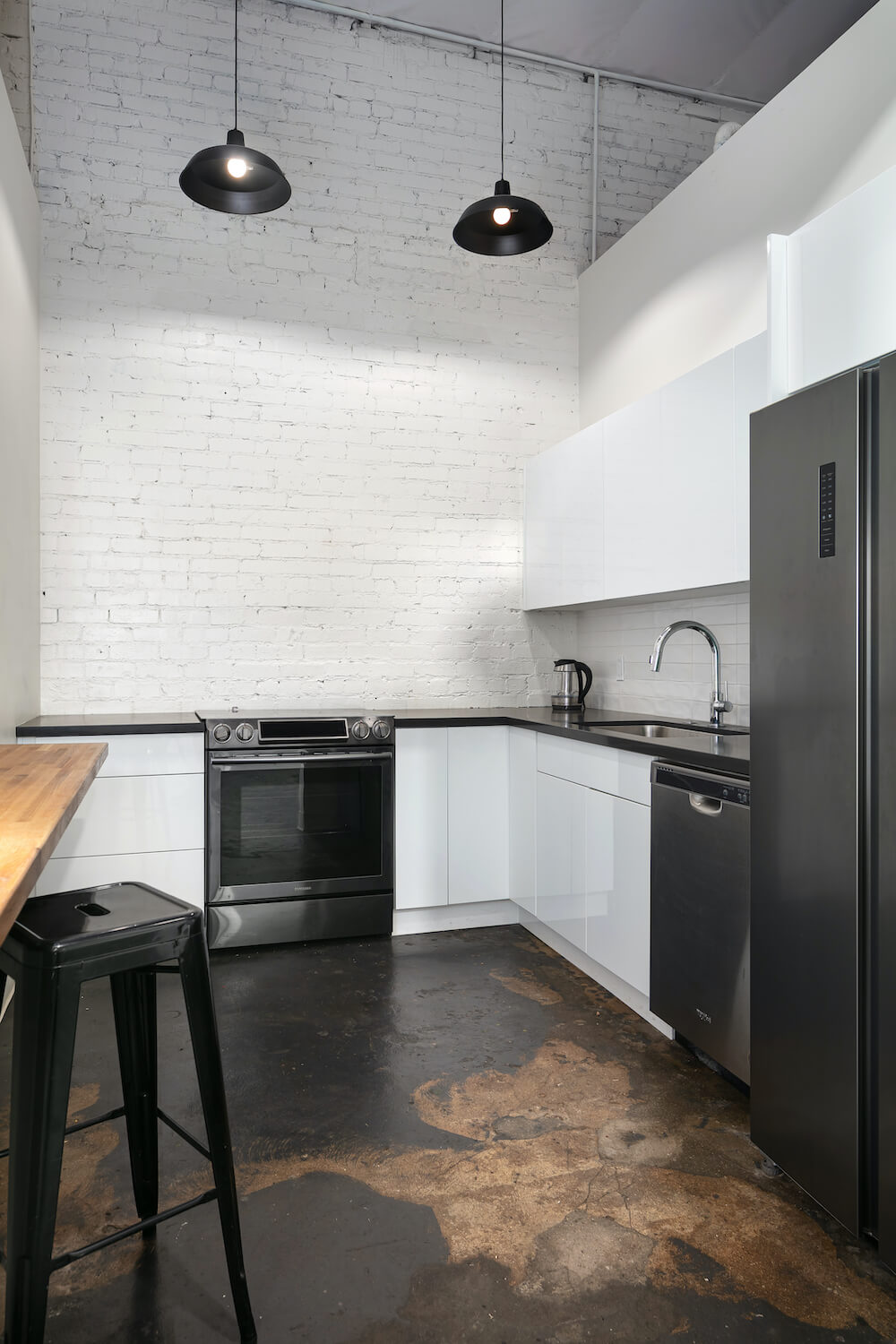
Sweeten: What’s next for the brand?
Neil: The core business as a photo, production, and film space will continue. Local events will help build our roots in the community.
Sweeten: Is there a Hippo Factory Studios special/service that you want to call out?
Neil: We are a large event space for baby showers, first and second-year birthday parties, and weddings.
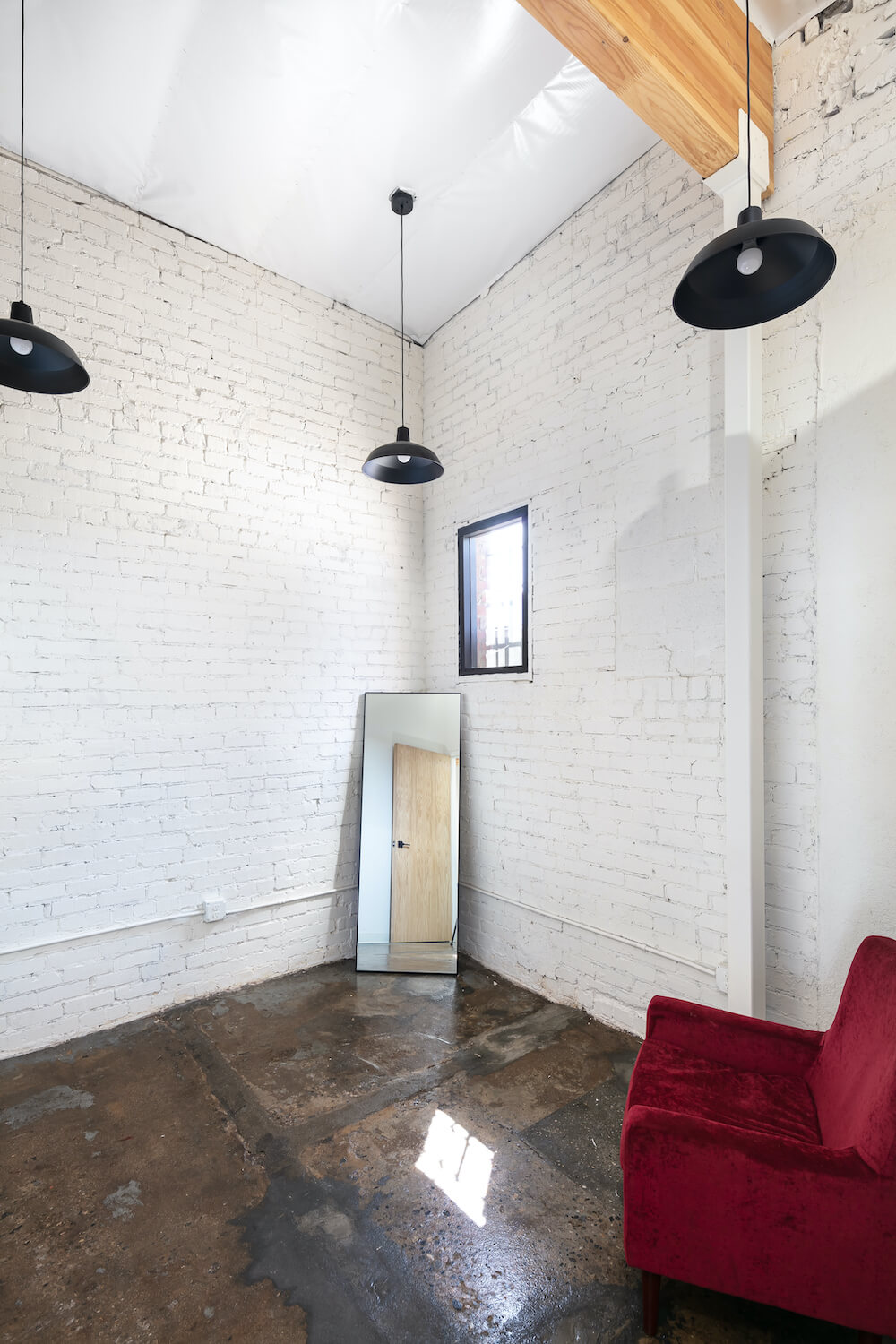
—
Sweeten handpicks the best general contractors to match each project’s location, budget, scope, and style. Follow the blog, Sweeten Stories, for renovation ideas and inspiration and when you’re ready to renovate, start your renovation with Sweeten.
A certificate of occupancy (CO) is a document that details what someone can legally use a property for, and the limits to which the property can be changed for that use. For example, a CO could state that a property can be used as an office, a private residence, or a restaurant. Many cities and towns will have online databases where you can download a copy of a property’s CO. Sometimes, it is possible to change a CO to cover a different use, but this can be costly and time-consuming.
First, review the certificate of occupancy. This will tell you what you are legally allowed to use the building for (an office space, a residence, a gym, etc.) Then, research whether there are any existing violations on the property. Review the space with an architect or contractor, and check for unpermitted work. Also review the structural, mechanical, electrical, and plumbing work. Will you be able to move walls? Can the current flooring support your business use? Make sure the building’s envelope–the windows, doors, and roof–are in good working condition. Consider people with disabilities. Is there a way for wheelchair users to enter the building? Lastly, understand your facility requirements, the most common of these being bathrooms based on the number of patrons your property can hold.
The national average cost to renovate a 5,000 square-foot restaurant with mid-level finishes is roughly $160 a square foot, or $480,000. This price can include the build-out, permits, equipment, and design. However, if you’re located in a major city, like NYC, L.A., or Philadelphia, expect renovation costs to be higher.
A general contractor is an expert who organizes and oversees construction for homes and businesses. Depending on the state the contractor works in, they may carry a license. Some general contractors may complete construction work themselves, while others may hire subcontractors to complete construction work. General contractors often help secure construction permits, recommend finishes and materials, and find solutions for challenges that arise during construction.
Before finding a general contractor, gather details about your project. List the spaces you are remodeling and their square footage. Do you need plumbing or wiring work? What materials will you use? Are you doing a gut renovation, or a rip-and-replace? Depending on these details, you may also need an architect or interior designer. Use your project details to find an expert who has experience doing similar projects. Always work with a licensed contractor where required. Renovators can use a service like Sweeten, which matches homeowners with vetted general contractors, offering input and support, for free.
The post An LA Photo Studio Opens for the Community appeared first on Sweeten.
from Sweeten https://sweeten.com/commercial-renovations/los-angeles-photo-studio-opens-for-the-community/
via IFTTT
Comments
Post a Comment